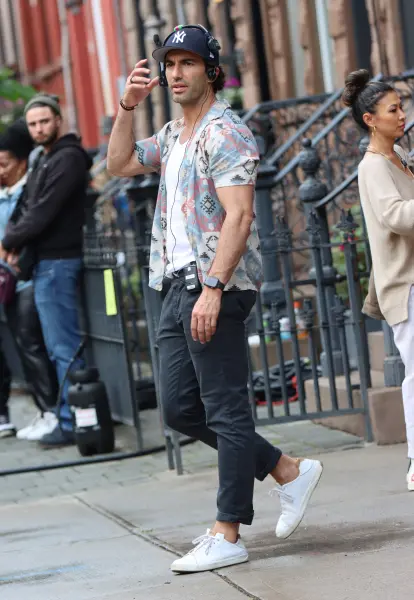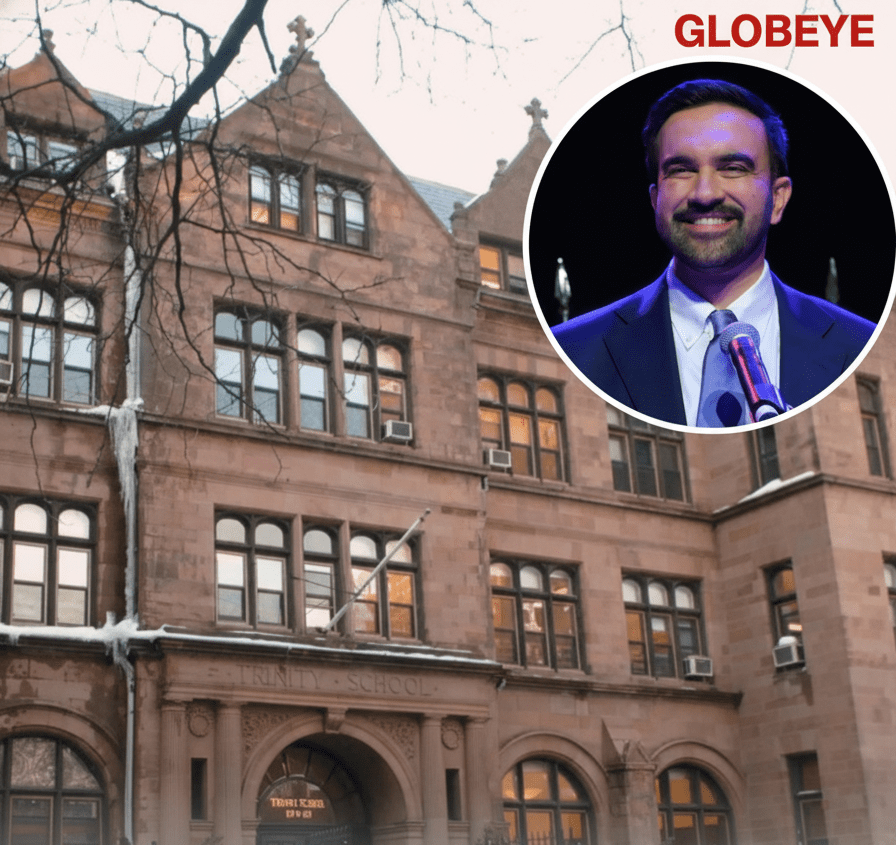After His $400 Million Countersuit Collapsed, Justin Baldoni Breaks Silence — Says His Legal Fight With Blake Lively Is “Not Finished Yet”
In a city where fame, fortune, and power often collide in silence, Justin Baldoni is choosing to speak. The 41-year-old actor, filmmaker, and producer has made it clear that his legal war with Blake Lively is far from finished — even as the judge-ordered closure of his $400 million countersuit seemed to bring one of Hollywood’s most complicated legal showdowns to a close. What many assumed was the end of a bruising court battle has instead become a prelude to another act.
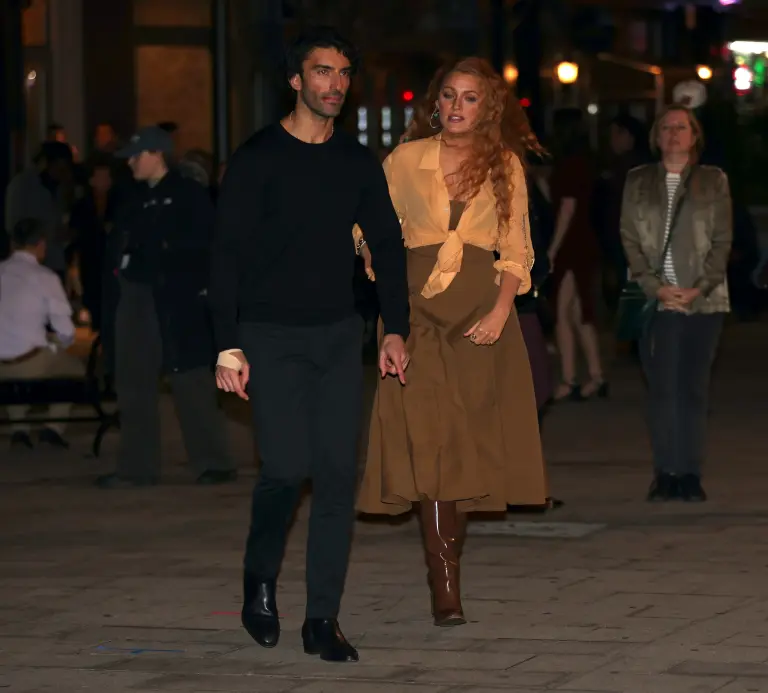
The legal standoff between Baldoni and Lively stems from the storm that brewed around their 2024 film It Ends With Us — a project that began as a passion piece and turned into a legal and public-relations nightmare. Lively had filed a complaint with the California Civil Rights Department in late 2024, accusing Baldoni and his company Wayfarer Studios of fostering a hostile work environment and retaliatory behavior during production. The story quickly caught fire across Hollywood, sparking online debate about conduct on film sets and the blurry line between collaboration and control.
Baldoni responded in January 2025 with a sweeping $400 million countersuit that named Lively, her husband Ryan Reynolds, and several members of her team. His lawsuit alleged defamation, extortion, and interference with contractual relations, arguing that a calculated campaign had been launched to “destroy reputations and dismantle creative ownership.” It was one of the largest civil filings ever connected to a film production — a stunning escalation that left industry observers stunned.
But the case unraveled quickly. In June 2025, Judge Lewis J. Liman dismissed most of Baldoni’s claims under California’s anti-SLAPP law — designed to prevent retaliatory lawsuits against individuals who come forward with misconduct allegations. The court found that Lively’s original complaint fell within protected reporting activity. Baldoni was granted limited permission to amend his claims regarding business interference but missed the subsequent filing date. On October 31, 2025, the judge signed a final order dismissing the case entirely.
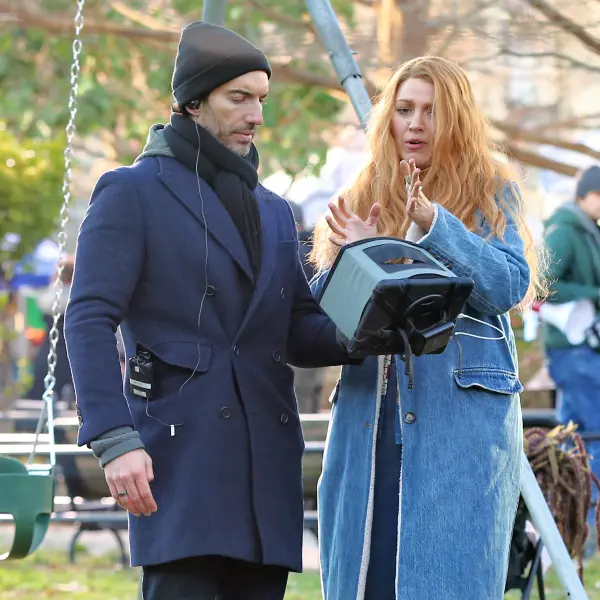
What looked like a final defeat, however, is being recast by Baldoni’s team as a strategic retreat. His attorney, Bryan Freedman, issued a statement to Page Six asserting that the decision not to refile was intentional: “No deadlines were missed. Our clients chose not to amend their complaint to preserve their appeal rights. This case isn’t over.” Freedman’s words were deliberate — calm, but carrying the weight of unfinished business.
To Baldoni’s supporters, the move signals that he’s playing a longer game. By declining to refile in state court, he leaves the door open for an appeal at the federal level, potentially re-examining how defamation laws interact with modern entertainment disputes. His critics, meanwhile, see the gesture as face-saving — a way to reframe an embarrassing courtroom loss as a tactical pause. But either way, the fight is still alive.
Lively, 38, has remained mostly silent in the aftermath, choosing to let the legal record speak for itself. Insiders close to the actress say she has no intention of backing down, especially with her original lawsuit still moving toward trial in March 2026. Her representatives describe Baldoni’s counterclaims as an “intimidation tactic,” while her legal team maintains that her initial complaint raised legitimate workplace concerns. For her fans, the court’s dismissal of Baldoni’s massive countersuit was a vindication — a symbolic moment that reinforced her credibility in the face of intense scrutiny.
For Baldoni, the consequences extend far beyond the courtroom. Once celebrated for directing Five Feet Apart and his widely praised book Man Enough, he has found himself in the center of a firestorm that questions his integrity and leadership. Yet those close to him insist that his resilience defines him. “Justin’s focus is on truth, not optics,” a Wayfarer Studios spokesperson told People. “He remains committed to ensuring that his name and work are not misrepresented.”
In many ways, the story encapsulates the new Hollywood — one where creative partnerships blur with legal power struggles, and where reputations can rise or fall overnight. The case has also become a flashpoint for broader cultural discussions. Can filmmakers still exercise authority on set without being accused of misconduct? And conversely, can actors speak up against perceived abuses without facing retaliatory lawsuits?

The tension between Baldoni and Lively is steeped in irony. Onscreen, It Ends With Us — based on Colleen Hoover’s bestselling novel — told the story of domestic strength and female empowerment. Offscreen, its two stars have become locked in a very different narrative about control, agency, and accountability. For fans of both actors, watching their collaboration implode into depositions and subpoenas feels like the unraveling of a Hollywood fairytale.
Legal experts say the coming months will reveal whether Baldoni’s “strategic pause” holds any weight. “It’s an unusual move,” one entertainment attorney told Variety. “Usually, if you believe in the strength of your defamation case, you amend and refile immediately. The decision not to do that suggests they’re either preparing for an appeal or waiting for developments in the parallel case.” That “parallel case” — Lively’s original suit — remains active, with discovery now underway.
Behind the headlines, the personal stakes are enormous. Lively, balancing family life with four children and her entrepreneurial ventures, has largely kept her focus on philanthropy and fashion. Baldoni, meanwhile, has doubled down on his spiritual and motivational messaging, appearing at conferences and online panels about emotional authenticity and masculinity. Yet even his critics admit that the lawsuit’s shadow looms over his next projects, which include a Wayfarer adaptation of The Butterfly Garden now in early development.
Observers note that Hollywood has seen plenty of legal feuds — from production disputes to broken contracts — but few have carried this combination of moral gravity and personal fallout. The Lively-Baldoni saga, with its gendered undertones and nine-figure claims, has become a cultural barometer for how post-#MeToo Hollywood navigates accountability. “This isn’t just about a movie,” one industry insider told Deadline. “It’s about who gets to define the narrative — the accuser or the accused.”
For now, the official record stands: Baldoni’s countersuit is dismissed; Lively’s lawsuit remains alive. But the tone from both camps makes one thing clear — neither side believes the story is over. Freedman has hinted that an appeal is possible early next year, while Lively’s team says they’re “fully prepared to defend every claim with facts.” What began as a private production clash has evolved into a legal and moral duel with millions watching.
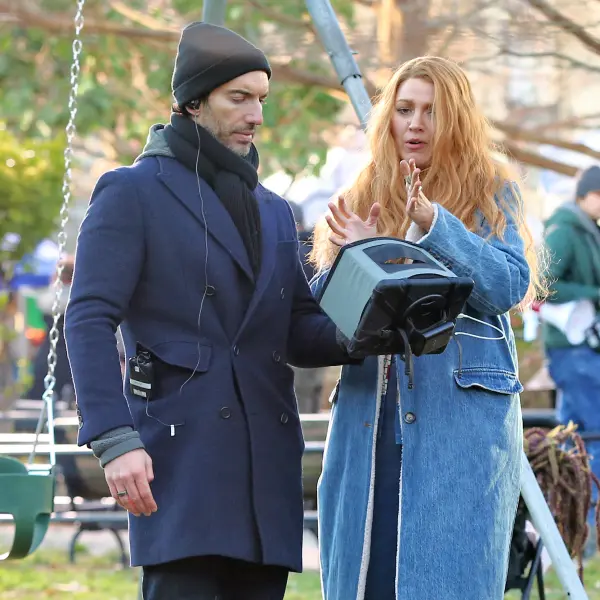
The emotional weight of the saga is hard to miss. Both Baldoni and Lively once praised each other publicly, calling their collaboration “creative chemistry.” Today, that chemistry has turned to courtroom tension, each side seeking justice on their own terms. The social-media noise, the speculation, the fan wars — all of it underscores how modern celebrity conflicts play out in public arenas as much as in court filings.
Yet, amid the chaos, there’s an undeniable sense that this case could set new precedents. Whether it’s the boundaries of workplace conduct, the limits of defamation law, or the fine line between whistleblowing and retaliation, the outcome will likely reverberate across the industry. Hollywood’s spotlight has never been brighter — or harsher.
For Baldoni, the message remains steady: “This is not over.” For Lively, the message is quieter but equally firm: “Justice will take its course.” And for an industry built on storytelling, their shared script has taken an unplanned turn — one where truth, perception, and power collide in real time.
